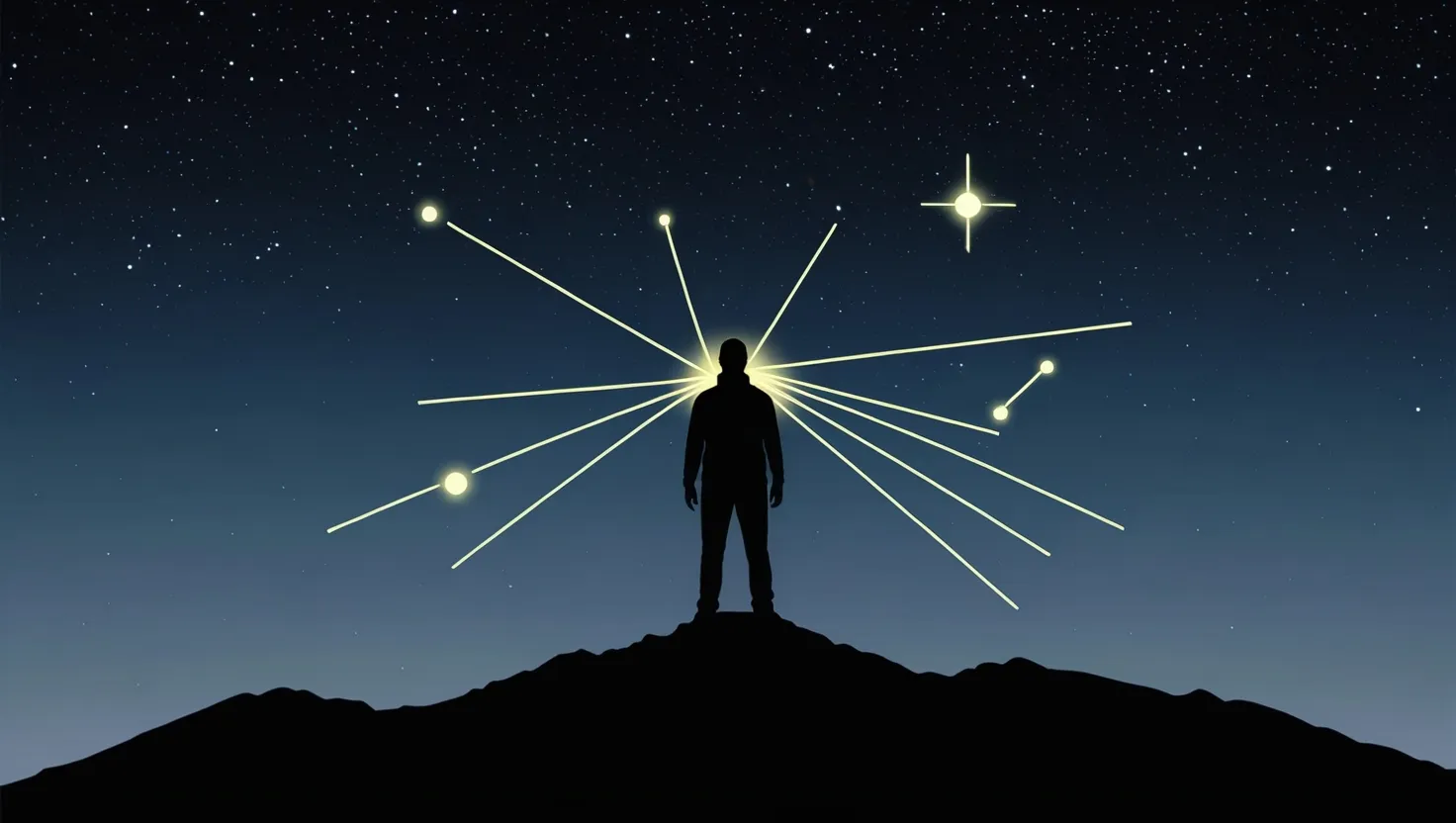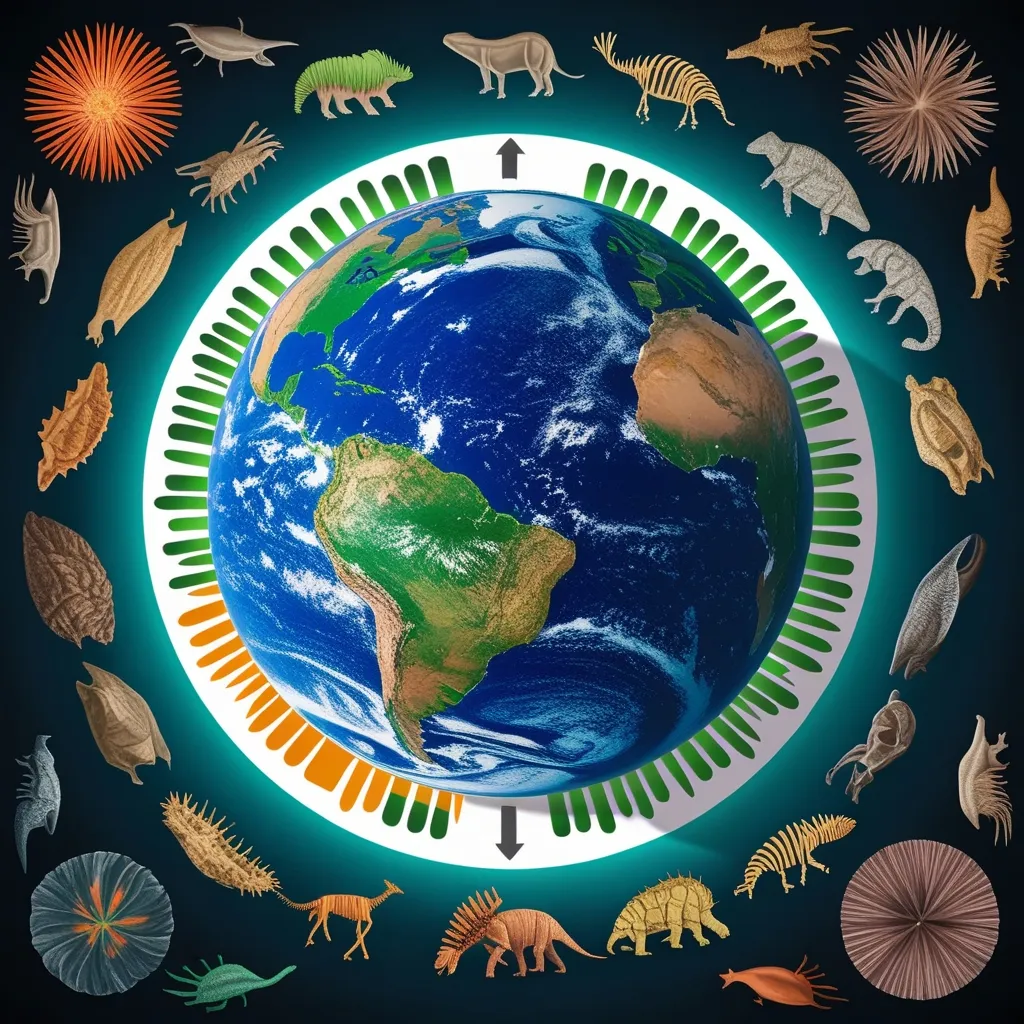Have you ever felt a strange, unexplainable connection to the universe, as if your body’s rhythms are somehow synced with the cosmos? This intriguing idea is at the heart of the Quantum Biorhythm Hypothesis, a theory that suggests our biological processes might be influenced by quantum vibrations from the universe. Let’s delve into this mind-bending concept and explore how it could change our understanding of our bodies and their connection to the grand scheme of things.
The Basics of Quantum Biology
To start, we need to understand the field of quantum biology, which investigates how quantum mechanics affects biological processes. This is not as far-fetched as it sounds; quantum effects have already been observed in various biological systems. For instance, photosynthesis, the process by which plants convert light into energy, involves highly efficient energy transfer mechanisms that can be explained by quantum phenomena like quantum walks and entanglement. These processes allow energy to be transferred across molecules with remarkable efficiency, far beyond what classical physics can explain[1][5].
Magnetoreception and Quantum Effects
One of the most fascinating areas where quantum biology intersects with cosmic influences is magnetoreception. This is the ability of certain organisms, including birds and some mammals, to sense the Earth’s magnetic field. Research suggests that this sensitivity might be due to quantum effects, specifically the radical pair mechanism. In this mechanism, the interaction between magnetic fields and radical pairs (molecules with unpaired electrons) can influence chemical reactions, allowing organisms to navigate using the Earth’s magnetic field[1][4].
Enzyme Catalysis and Quantum Tunneling
Enzymes, the biological catalysts that speed up chemical reactions in our bodies, also exhibit quantum behavior. Quantum tunneling, for example, allows electrons and protons to pass through energy barriers, facilitating reactions that would otherwise be impossible. This process is crucial in electron transport chains and proton transfer, which are essential for energy production in cells. The efficiency of these processes can be attributed to the wave-like properties of particles at the quantum level[5].
Cosmic Frequencies and Biological Rhythms
Now, let’s consider the idea that our bodies might be tuned to cosmic frequencies. This concept is not entirely new; ancient cultures often believed in a deep connection between human health and celestial events. Modern research, however, is starting to provide some scientific basis for this belief. For instance, studies have shown that changes in space weather, such as solar flares and geomagnetic storms, can affect our mood, sleep patterns, and even our heart rate. Some people seem more sensitive to these changes, suggesting that there might be a hidden synchronization between our biological rhythms and cosmic events.
The Role of Tryptophan and Superradiance
A recent discovery involving tryptophan, an amino acid found in proteins, adds another layer to this theory. Tryptophan molecules, when arranged in a network, can exhibit a phenomenon called superradiance. This is a collective quantum effect where the fluorescence of tryptophan molecules becomes stronger and faster when they are synchronized. This effect has been observed in biological systems and could play a role in how neurons transmit signals, potentially allowing the brain to process information much faster than through traditional chemical processes[3].
Implications for Health and Intuition
If our bodies are indeed tuned to cosmic frequencies, the implications are profound. It could mean that by synchronizing our biological rhythms with these frequencies, we might be able to boost our health, enhance our intuition, or even predict future events. Imagine being able to anticipate changes in your mood or energy levels based on upcoming celestial events. This synchronization could also offer new avenues for treating diseases, particularly those related to metabolic disorders or neurological conditions.
The Challenge of Decoherence
However, there’s a significant challenge to this theory: decoherence. In quantum mechanics, decoherence is the loss of quantum coherence due to interactions with the environment. At room temperature, decoherence times are very short, which makes it difficult for quantum states to survive for long periods. Yet, some studies suggest that certain biological systems can maintain quantum coherence for longer than expected, possibly due to specific structural adaptations or environmental assistance[1][2].
Experimental Evidence and Future Research
While the idea of our bodies being tuned to cosmic frequencies is compelling, it requires robust experimental evidence to be taken seriously. Researchers are using advanced techniques such as molecular dynamic simulations and spectroscopy to study these phenomena. For example, studies on the electron transfer flavoprotein (ETF) have shown that its interaction with oxygen could be influenced by magnetic fields, similar to magnetically sensitive proteins in birds. This opens up possibilities for modulating metabolic processes using external magnetic fields[4].
The Potential for Conscious Synchronization
If we can indeed tap into these cosmic frequencies, the next question is how we might do it consciously. This could involve practices such as meditation, which some believe can synchronize our internal rhythms with external cosmic rhythms. While this is speculative, there are historical and cultural precedents where people have used various techniques to align themselves with celestial events.
Conclusion
The Quantum Biorhythm Hypothesis is a fascinating theory that challenges our conventional understanding of the relationship between our bodies and the universe. While it is still in the realm of speculation, the underlying science of quantum biology provides a solid foundation for exploring these ideas. As research continues to uncover the intricate ways in which quantum mechanics influences biological processes, we may find that our connection to the cosmos is far more intimate than we ever imagined. Whether or not we can consciously tap into these rhythms, the journey of discovery itself is a compelling one, inviting us to rethink our place within the grand symphony of the universe.






